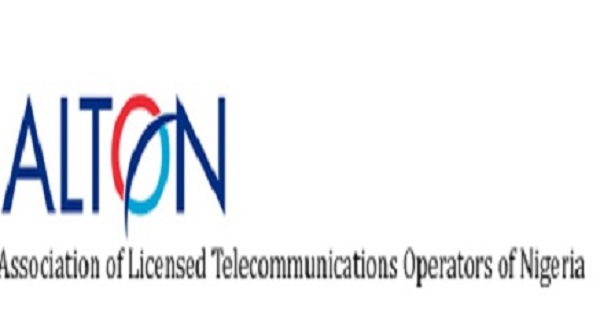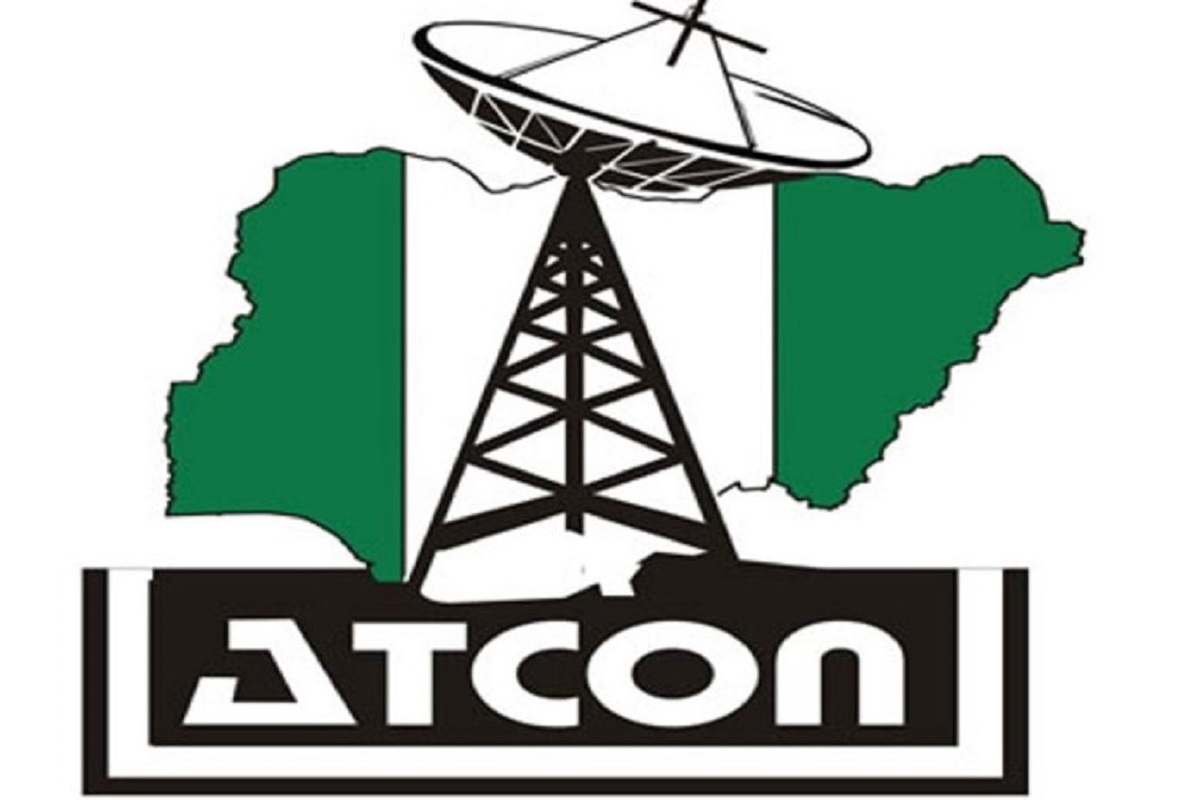Telecom
Stakeholders Worry over Lack of Understanding of Telecom Services Impact

Stakeholders have decried lack of understanding of impact of telecom services by some state government officials.
This is as a result of the recent fallout face-off between Association of Licensed Telecommunications Operators of Nigeria (ALTON) and Kogi state government resulting in the former threatening to blackout telecommunications services in the state and beyond,
Speaking on the side line at the fourth quarter forum of Nigeria Information Technology Reporters’ Association (NITRA) held recently, Dr. Henry Nkemadu, deputy director/ head, Special Intervention Projects, NCC, who represented the EVC, said that the Kogi/ALTON face-off brought to the fore the fact that some state government officials lack basic understanding of the economic impact of telecommunications service on their states.
“The urgent response we saw when the government heard of the consequence of shut-down of telecom mast which will also affect surrounding states among others we have witnessed show that there is need to educate state policy implementation officers on the benefits of ICT,” he said.
Mohammed Rudman, managing director, Internet Exchange Point of Nigeria, said that there are constant bottle necks in terms of regulations just to boost internally generated revenue for the state.
“There are various kinds of regulations, as at the last time I checked there are 38 different levies and taxes on telecommunications operators across the federal, states and local government areas.
“This is huge. It doesn’t make sense. What should happen is for each state to possibly harmonize and get under one ministry where all the telecommunications related taxes and regulations can be pursued and be paid instead of going to various ministries departments and agencies.
“I think the politicians do not really understand the huge impact of ICT in the economy, development, education and all the other sectors. So, it is left for industry experts to interpret it in a layman’s knowledge to them, most of the governors and other political office holders don’t understand the huge impact of ICT to the development of their states.
“We need to let them know that if they do this or that for operators in the next four or five years this is what they will benefit.
“For instance, education is a problem in all the states, we can let them know how they can use ICT tools to train both the teachers and students without building bricks and mortar schools,” he said.
Olusola Teniola, president, ATCON, seeks a law that will classify telecom equipment as critical national infrastructure to holistically solve the problem of incessant closure of cell sites by state government agencies over levies and taxes.
 Olusola Teniola, president, ATCON
Olusola Teniola, president, ATCON
“It is unfortunate that some arms of government do not understand the importance of telecommunications services to the life of their citizens, those governments put revenue ahead of the life of citizens.
“The idea of looking at telecom as cash cow where levies and taxes are applied when the state feel they need Internally Generated Revenue (IGR) is not acceptable at all. This is inimical to bridging digital divide.
“We are appealing to other state governments to stop closure of telecommunications infrastructure because of its impact on the citizens and youths as their future depend on the availability of telecom services for them to support electronic businesses,” he said.
Telecom
ATCON Commends FG for $2Bn “Project Bridge”, Pledges Support

Association of Telecommunication Companies of Nigeria (ATCON) on Monday commended the Federal Ministry of Communication, Innovation, and Digital Economy (FMCIDE) for spearheading a new initiative known as ‘Project Bridge’.

Tony Emoekpere, president, ATCON, stated in an interview with NAN in Lagos that the initiative aimed to create a robust and resilient telecommunications backbone across Nigeria.
Emoekpere stated that the project was an ambitious public-private partnership designed to connect all 36 states and Abuja, as well as LGAs, via fiber optic cables.
According to him, the initiative is not meant to replace existing infrastructure but to complement it, creating a more resilient network.
“Right now, most of the networks that we have are linear in nature. ’Just imagine, if there’s only one road from Lagos to Ibadan; if anything happens to that road, you would not get to Ibadan.
‘’This project will create alternative routes,” he said.
The ATCON boss stated that the project was modeled after the successful PPP framework in the energy sector, with the government contributing a certain percentage to the Special Purpose Vehicle and the private sector providing the remaining funding.
He stated that the project’s goal was to establish alternative, redundant connections, thereby ensuring that services remained uninterrupted even if one part of the network was compromised.
The president expressed the full support of telcos, noting that the project would enable members to deliver services more effectively in locations where infrastructure was currently a significant challenge.
“With this project, we will have multiple options,” he said.
Project BRIDGE involves building a nationwide fiber optic network to expand digital infrastructure and connectivity, rather than a physical bridge, as part of Nigeria’s National Broadband Plan.
The project is a public-private partnership ($2 billion cost) using an SPV to deploy 90,000km of fiber-optic cable to enhance education, healthcare, and the digital economy.
Telecom
MTN Restores Services After Planned Network Maintenance in Parts of Adamawa, Borno, and Kano

MTN Nigeria has successfully completed a scheduled network maintenance operation that affected 101 sites across 15 Local Government Areas (LGAs) in Adamawa, Borno, and Kano States.

The restoration marks a significant step in the company’s ongoing efforts to enhance service reliability in the Northeast region, amidst multiple fibre cuts and vandalism.
The maintenance, which took place on Sunday, August 24, involved the cutover of traffic to a newly installed fiber span along the AFCOT–Bawo Village route in Adamawa State.
This upgrade was necessary to replace a previously damaged section of the network infrastructure. All service maintenance was done within timeframe and restorations before 1 PM on Sunday August 24th.
We can confirm that all impacted sites have been fully restored, and services are now operating normally. We appreciate our subscribers’ patience and sincerely apologize for any inconvenience caused during the downtime.
The affected services included 2G, 3G, 4G, and enterprise connectivity, with temporary disruptions experienced in LGAs such as Girei, Song, Mubi North, Hong, and Michika in Adamawa; Askira/Uba and Shani in Borno; and Nasarawa in Kano.
The work was scheduled during daylight hours to ensure the safety of field engineers, given the linear and unprotected nature of the route.
This restoration is part of MTN’s broader strategy to strengthen its infrastructure in underserved regions and ensure consistent service delivery across Nigeria, amidst constant fibre cuts and vandalism.
Telecom
TikTok Unveils Artist Insights Platform in Nigeria

TikTok has launched its music insights platform, TikTok for Artists, in Nigeria to support artist growth and fan engagement across the country’s vibrant music industry.

The platform, which debuted globally earlier this year, provides artists, labels, and management teams with access to daily-updated dashboards and analytics tools to track music performance, audience demographics, and fan interactions.
Toyin Mustapha, Head of Music Partnerships for the UK, Ireland, and Sub-Saharan Africa at TikTok, said the initiative was part of the company’s commitment to empowering African creators.
“With the launch of TikTok for Artists in Nigeria, we’re giving artists and their teams access to insights that can help them engage their fans in more meaningful ways and grow their careers globally,” Mustapha said.
The platform offers detailed song performance metrics, including views, posts, and creator engagements per track. It also provides granular post-level data such as likes, comments, shares, and completion rates, alongside demographic breakdowns by gender, age, and language.
In addition to analytics, TikTok for Artists includes educational resources and step-by-step guides to help artists build sustainable careers.
A key feature of the platform is the Pre-Release tool, which allows artists to launch campaigns for upcoming albums and enables fans to pre-save tracks on streaming platforms like Spotify and Apple Music.
British artist Jordan Adetunji described the platform as a “game changer,” noting its value in helping artists and their teams plan effective campaigns.
TikTok said the rollout reaffirms its investment in Africa’s creative economy and aims to foster deeper connections between artists and fans across the continent.
The platform is now available to all certified TikTok Artist Accounts, with access also extendable to managers and label teams.

 E-Financial1 day ago
E-Financial1 day agoFBNQuest Merchant Bank Facilitates Landmark ₦5Bn Commercial Paper Programme for Accion Microfinance Bank

 E-Business1 day ago
E-Business1 day agoNDPC Begins Probe of Banks, Others for Data Breaches

 Telecom1 day ago
Telecom1 day agoIntel–U.S. Partnership Reshapes Semiconductor Landscape with Historic Equity Agreement

 Telecom1 day ago
Telecom1 day agoDigital Realty Commits to Africa’s Digital Transformation @ Launch of LKK2 Data Center

 E-Financial1 day ago
E-Financial1 day agoUBA to Deepen Financial Inclusion, Boost Savings’ Culture with Super Savers’ Promo

 Telecom1 day ago
Telecom1 day agoNITDA Alerts Nigerians to eSIM Security Flaw Deployed to Hijack Devices Worldwide

 E-Financial1 day ago
E-Financial1 day agoNigeria Leads Africa in Stablecoin Adoption with $22Bn in Transactions

 E-Financial1 day ago
E-Financial1 day agoFidelity Bank Resumes Intl Transactions on Naira Debit Cards















